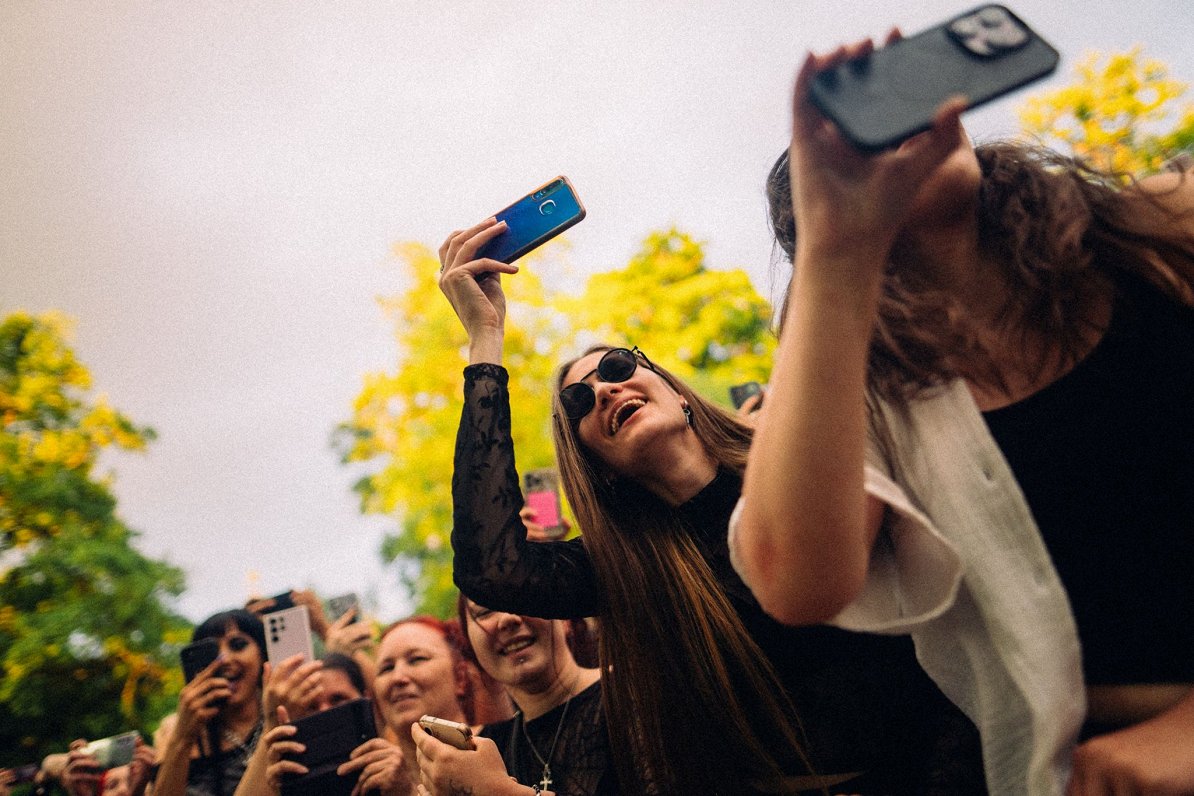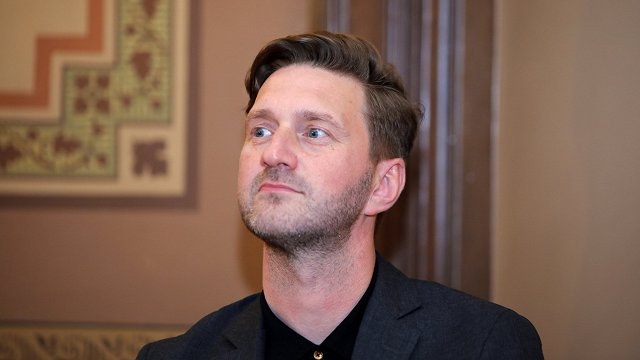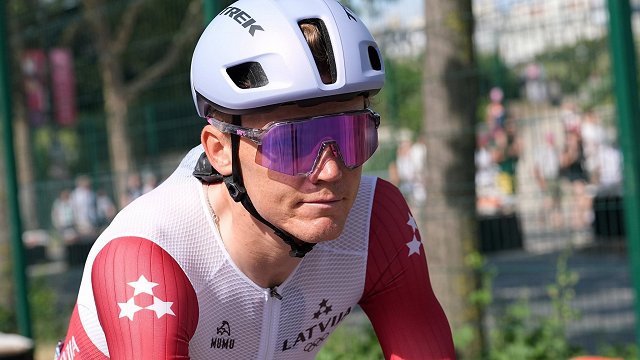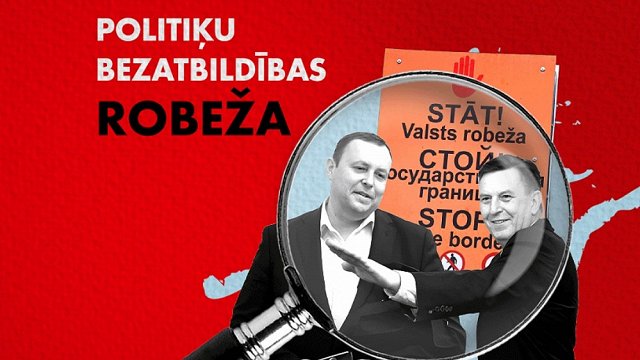Hip-hop and comfort era
This year, the headliner of the biggest music festival in Latvia, Positivus, will be American musician Jason Derulo. The second day of the festival will be dedicated to pop and rock music and will feature a whole range of current artists with different musical styles.
The first day of the festival will appeal more to young people, as for the third year in a row it will be dedicated to hip-hop, which is so popular among young people at the moment, says Ģirts Majors, the organizer of Positivus: "We have always tried to represent what's hot in music. It's the hip-hop era, so in the last two years, there have been more hip-hop names on Friday. This year the three main stage artists are Offset, Ski Mask, and Nemzzz. There's not even a single hip-hop artist of this level in the Baltics this year, but we'll have three in one festival."
As a testament to the relevance of hip-hop, many other popular music festivals this summer also include the genre, while the hip-hop-only festival "Straume" will take place in Līgatne on July 5 and 6 for the third year running, with the participation of some of the most popular local musicians.
The festival organizers need to keep an eye not only on current music trends but also on the ever-changing habits of festival-goers.
Young people no longer prefer a tented festival experience, so tents - especially at big festivals - are becoming a thing of the past. In this respect, the relocation of Positivus from Salacgrīva to Riga, where there are more comfortable options for enjoying the festival and staying overnight, is justified. Rīga is also better known to international audiences and is able to attract more foreigners and visitors in general, confirms Ģirts Majors.
Positivus is still the biggest festival in the Baltic region, but in recent years there has been a new trend towards festivals competing less with each other and more with the big concerts, even on an international level.
Ģirts Majors says: "It's getting harder and harder to get artists to go to festivals because they like to do their own concerts more. Until a few years ago, festivals were a very serious part of every artist's career and everyone wanted to play festivals. Now that is changing. We don't have so many of those big concerts, but the behavior of the audience is changing here too. People are much more inclined towards concerts. In general, the concert business has been much more stable in recent years than the festival business."
Foreign contributions
For the last three years, Positivus has been held in Riga, with a total budget of around two million euros, more than half of which is spent on artists' fees, which have increased considerably since the pandemic, in some cases threefold. This is also where the Riga City Council's co-financing of €200,000 goes. Without it - as Ģirts Majors says - the program would be 20% less competitive.
It is important for the Riga City Council to support events of this scale as they bring a sufficient number of foreign visitors to Riga. Forecasts show that this year there will be over 7,000 foreigners coming specifically for the festival, which is 10% more than last year. Most of them are music lovers from the Baltic States, the Nordic countries, and Poland.
Unfortunately, the flow of people from Germany and further afield has still not resumed after the pandemic and the outbreak of war.
According to Ieva Lasmane, Head of the Riga Investment and Tourism Agency's Tourism Department, such a big event contributes to the overall economic development of the city: "The festival area is large enough, the festival employs a large number of people, there is also an opportunity for entrepreneurs to participate, trade and earn money, so it is important. And of course, the festival creates events around itself in the city. This year's forecast - if the municipality supports the festival with a co-financing of EUR 200,000, the calculation before the festival shows that what the municipality will recover in its budget in the form of various taxes is more than EUR 333,000, so the balance is positive. What the municipality invests is returned through various other taxes. Of course, the biggest contribution from such major measures is to the national budget, which comes directly from VAT revenue."
Maintaining trust
For the third year running, the Cēsis Art Festival is continuing its ambitious Wagneriana project, and this year's festival centerpiece will be a concert performance of the final opera in Richard Wagner's tetralogy The Ring of the Nibelungs, "The Twilight of the Idols", on August 3.
Such large-scale events in Cēsis are made possible year after year thanks to the festival's long-standing sponsors, whose support makes up two-thirds of the festival's budget. The total budget is EUR 200,000, with the contribution of the Municipality of Cēsis amounting to EUR 15,000.
In order to gain and maintain the trust of the sponsors and the public, it is very important to maintain a consistently high quality bar, says Juris Žagars:
"Reputation is crucial in this case. Whether you can always maintain a high professional level. And in ticket sales it also has its benefits, because people trust you and it's very important not to let them down. But to provide an artistic product for which people are prepared to pay EUR 50, EUR 80 and EUR 100, as they are for Wagner, that is a challenge to a certain extent. That is why I always judge the success of a festival very carefully by how many people have bought tickets. At the moment all these music projects are selling very well, so I think we've hit the mark."
Academic music and arts festivals are not characterized by rapid changes in trends or audience habits. Although Juris Žagars admits that, for example, the Cēsis Festival hardly organizes outdoor events anymore, because it's too risky due to the unstable weather conditions: "We used to have a series of outdoor cinema screenings in the open air, in the forest. We have a choir "Kamēr..." in the middle of the river on a raft and so on.
"Of course, these are wonderful projects, we've won awards for them, people still remember them, but they always involve a lot of risk, and frankly, people today don't want to take risks anymore. They want to buy a ticket and know for sure that it is going to happen. Well, it would be hard to listen to Wagner for five hours outside, in bad weather, in cold weather."
Meanwhile, still outdoors, the main event of the festival - the original opera - is still taking place at one of the most enduring festivals, the Sigulda Opera Festival, which this year will be celebrating its 31st edition, this year centered on Verdi's La Traviata.
The budget for the Sigulda Opera Festival is €200,000, with € 45,000 from Sigulda City Council. "The team has changed by 80%. There will be new winds, and I am sure - new quality as well."
Summer music festivals are once again in abundance this summer. The number of events is growing, but the number of visitors cannot grow much, so you have to fight for visitors. Juris Žagars, the organizer of the Cēsis festival, sees this as a good incentive for healthy competition to keep music culture in Latvia at a high level.






























